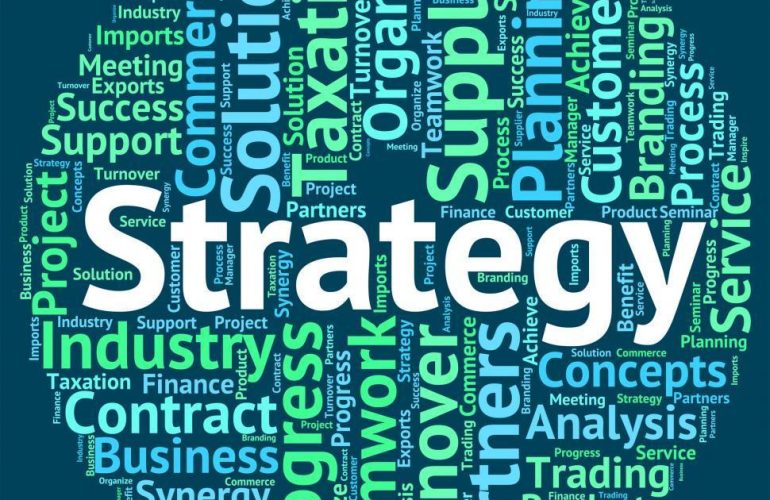In today’s competitive job market, the interview process has evolved beyond a single conversation, often encompassing multiple rounds that assess a candidate’s capabilities, fit, and potential for success within an organization. Each round may involve different stakeholders, varying formats, and distinct evaluation criteria, creating a multifaceted challenge for candidates. To navigate this labyrinthine process effectively, it is imperative to adopt a strategic approach that not only showcases one’s qualifications but also demonstrates adaptability, interpersonal skills, and cultural fit. This article elucidates comprehensive strategies for mastering multiple interview rounds, providing an analytical framework designed to enhance candidate performance and optimize the likelihood of securing a desired position. Through a blend of preparation techniques, communication strategies, and psychological insights, professionals will gain invaluable tools to excel across diverse interview scenarios, ultimately elevating their competitive edge in a rigorous hiring landscape.
Table of Contents
- Understanding the Multi-Round Interview Process and Its Importance
- Essential Preparation Techniques for Each Stage of Interviews
- Effective Communication Strategies to Impress Interviewers
- Post-Interview Actions: Reflecting, Following Up, and Continuous Improvement
- The Conclusion
Understanding the Multi-Round Interview Process and Its Importance
The multi-round interview process serves as a comprehensive method for employers to evaluate candidates from various angles, ensuring that they match the company’s needs and culture. This approach typically involves several stages, each designed to assess different competencies, including technical skills, problem-solving abilities, and interpersonal qualities. The layered structure of these interviews can be categorized into the following phases:
- Initial Screening: A preliminary assessment to filter out candidates.
- Technical Interviews: In-depth evaluations of specialized skills relevant to the role.
- Behavioral Interviews: Discussions focusing on past experiences and cultural fit.
- Final Interviews: A wrap-up interview, often with upper management, to confirm suitability.
Understanding the significance of each round is crucial for candidates to navigate successfully through the process. Every stage provides not just an opportunity for the employer to assess the applicant but also a chance for candidates to showcase their compatibility and enthusiasm for the role. Below is a table that highlights the key goals of each interview round:
| Round | Purpose |
|---|---|
| Initial Screening | Filter candidates based on resume and qualifications. |
| Technical Interviews | Evaluate specific skills and practical knowledge. |
| Behavioral Interviews | Assess cultural fit and past experiences. |
| Final Interviews | Consolidate findings and discuss future potential. |
Essential Preparation Techniques for Each Stage of Interviews
Preparation is key to navigating multiple interview rounds successfully. At the initial screening stage, it’s vital to research the company thoroughly. Understand their values, products, and recent news to tailor your responses effectively. Additionally, practice common screening questions, focusing on your resume highlights and how your experiences align with the job description. Consider the following strategies:
- Conduct mock interviews with friends or mentors.
- Prepare your “elevator pitch” to articulate your qualifications succinctly.
- Familiarize yourself with behavioral interview techniques using the STAR method (Situation, Task, Action, Result).
As you progress to the technical or second-round interviews, your focus should shift towards demonstrating specific skills pertinent to the role. This could involve solving problems, coding assessments, or case studies. Use the following tactics to enhance your performance:
| Technique | Description |
|---|---|
| Problem-Solving Scenarios | Practice analyzing common industry challenges and formulating solutions. |
| Technical Mock Tests | Utilize online platforms to simulate test conditions and build confidence. |
| Feedback Sessions | Seek critiques on your performance from industry professionals to improve. |
for the final interview stage, the emphasis shifts toward cultural fit and personality alignment. Prepare to discuss your values and experiences in a way that showcases your interpersonal skills and teamwork capabilities. Highlight your adaptability to various workplace environments and how your long-term goals align with the organization. To excel in this round, consider the following:
- Prepare thoughtful questions that reflect your understanding of the company culture.
- Showcase your passion for the role and how you envision contributing to the team.
- Reflect on past experiences that illustrate your leadership and collaboration abilities.
Effective Communication Strategies to Impress Interviewers
In order to create a lasting impression on interviewers, it’s essential to employ effective communication strategies that showcase your competence and enthusiasm. Active listening is a crucial component; it demonstrates respect and allows you to respond thoughtfully to the interviewer’s questions. Make a habit of nodding, maintaining eye contact, and paraphrasing to confirm your understanding of what has been said. Body language also plays a vital role; maintaining an open posture and using appropriate gestures can enhance your verbal messages and convey confidence. Additionally, refining your storytelling skills will help you articulate your experiences compellingly, allowing interviewers to visualize your journey and how it aligns with their organization’s goals.
Preparing tailored responses to common interview questions can greatly improve your conversational flow. Consider using the STAR method (Situation, Task, Action, Result) to structure your answers, ensuring clarity and impact. It’s wise to research the company beforehand and incorporate relevant terminology and cultural references into your responses, which can highlight your genuine interest and effort. Furthermore, practicing mock interviews with a friend or mentor can help identify areas for improvement, such as pacing, tone, and clarity. These steps will enrich your interviews and position you as a standout candidate.
Post-Interview Actions: Reflecting, Following Up, and Continuous Improvement
After completing your interview rounds, it’s essential to take the time to reflect on your performance. Evaluating your strengths and areas for improvement can provide valuable insights for future interviews. Consider the following aspects during your reflection:
- Self-Assessment: Identify the questions you answered confidently and those that challenged you.
- Body Language: Reflect on your non-verbal cues and how they may have affected the interviewer’s perception.
- Engagement: Assess how well you connected with the interviewers and whether you established rapport.
Following up is a critical step in the interview process. Sending a well-crafted thank-you email not only expresses gratitude but also reinforces your interest in the role. While doing so, keep these points in mind:
- Be Prompt: Aim to send your thank-you note within 24 hours of your interview.
- Personalize: Reference specific topics discussed during the interview to demonstrate your attentiveness.
- Express Enthusiasm: Clearly convey your interest in the position and why you believe you would be a great fit.
| Action | Description |
|---|---|
| Reflect | Analyze your performance and gather insights for growth. |
| Follow Up | Send a thank-you note to reinforce your candidacy and interest. |
| Continuous Improvement | Apply learnings from your reflections to enhance future interviews. |
The Conclusion
successfully navigating multiple interview rounds requires a strategic approach that balances preparation, adaptability, and self-presentation. By understanding the distinct objectives of each round, thoroughly researching the organization, and honing your interpersonal skills, you can significantly enhance your chances of standing out as an ideal candidate. Remember to leverage feedback from earlier interviews to refine your performance in subsequent rounds, and maintain a professional demeanor that reflects your commitment to the role. Ultimately, mastering the intricacies of this process not only positions you as a competitive applicant but also equips you with valuable skills for future career advancement. With these strategies in hand, you are well on your way to turning interview challenges into opportunities for success.





